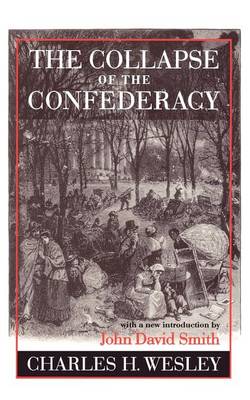Southern Classics
1 total work
IN 1937 CHARLES H. WESLEY (1891-1987) took a bold step in rewriting the history of the Confederate South by asserting that the new nationa failed because of underlying internal and social factors. Looking beyond military events to explain the Confederacy's demise, Wesley challenged conventional interpretations and argued that, by 1865, the supposedly unified South had ""lost its will to fight."" He also recognized that many factors contributed to the defeat of the Confederacy: over-whelming numbers in the Northern armies, scarcity of food in the South, loss of manpower in the Confederate army, lack of war materiel, poor fiscal management, the Union blockade, the South's ""king cotton"" diplomacy, states' rights, and inferior Confederate leadership. This edition of Wesley's The Collapse of the Confederacy includes a new introduction by John David Smith that examines Wesley's interpretation of Confederate defeat and analyzes its significance for modern scholarship on the experiences of African Americans in the Civil War.
